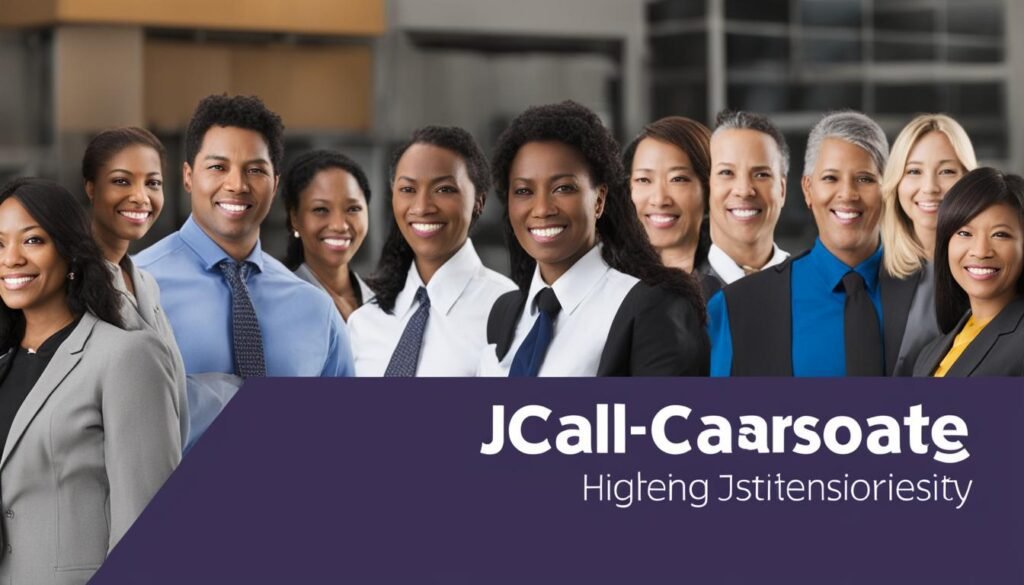The United Nations’ Sustainable Development Goal 5 focuses on achieving gender equality and empowering women in various aspects, including leadership, economic empowerment, and protection against gender-based violence. As a female law advocate, I am passionate about promoting women’s rights in law and creating a more inclusive legal field.
Women have historically faced numerous legal restrictions and barriers that have limited their opportunities and hindered their progress. However, thanks to the tireless efforts of feminists and the feminist movement, significant strides have been made in dismantling these barriers and advancing gender equality in law.
Throughout this article, I will delve into the relationship between women and the law, focusing on the United States. I will discuss how the feminist movement has played a pivotal role in advocating for women’s rights and breaking down legal barriers. Together, we can empower women, promote gender equality in the legal field, and create a more just society.
Key Takeaways:
- Gender equality in law is a crucial step towards achieving overall gender equality.
- The feminist movement has been instrumental in advocating for women’s rights in the legal field.
- By dismantling legal restrictions, we can empower women and create equal opportunities.
- Women in the legal profession contribute diverse perspectives and enhance decision-making.
- Despite progress, women still face barriers and challenges in the legal profession.
The Importance of Empowering Women in the Legal Profession
Empowering women in the legal profession is vital for fostering diversity and ensuring a fair and just legal system. It brings different perspectives and experiences to the table, leading to better decision-making and greater equality. By providing equal opportunities for career advancement, leadership roles, and professional development, we create an environment where women can excel and contribute their valuable expertise.
When women are empowered in the legal profession, they serve as role models for aspiring female legal professionals. Their accomplishments inspire others to overcome obstacles and pursue their ambitions, creating a ripple effect of positive change in the industry. By supporting and encouraging women in law, we cultivate a community of strong and resilient professionals who are making significant contributions to society.
Empowering women in the legal profession not only benefits individual women but also strengthens the overall legal system. When women have a seat at the table, their unique perspectives and experiences contribute to more well-rounded and inclusive outcomes. Women bring fresh ideas, innovative approaches, and a deep understanding of the diverse needs of clients and communities.
Furthermore, promoting the empowerment of women in law helps to address historical gender disparities and systemic biases. It challenges the existing norms that have perpetuated inequalities and provides a pathway for change. By creating a level playing field, we can break down gender barriers, promote equal opportunities, and build a more inclusive and representative legal profession.
To fully harness the benefits of empowering women in the legal profession, it is essential to address and overcome the challenges and biases that women may face. This includes actively working to combat gender biases, providing mentorship and support, implementing flexible work arrangements, ensuring gender pay equity, and establishing support networks and affinity groups. By actively working to create an environment that empowers and supports women, we can create a legal profession that celebrates diversity, fairness, and equality.
Barriers and Challenges Faced by Women in the Legal Profession
Women in the legal profession often encounter gender bias and stereotypes that detrimentally impact their abilities, resulting in unequal treatment and restricted career opportunities. These obstacles can hinder their professional growth and limit their ability to reach leadership positions within the industry.
The prevalence of gender bias can lead to the undervaluation of women’s skills and expertise, undermining their contributions in the workplace. Stereotypes that perpetuate assumptions about women’s capabilities can further perpetuate this bias, creating an environment that fails to recognize and appreciate their talent.
The demanding nature of legal work, coupled with family responsibilities, presents a unique challenge for women in the profession. Balancing the expectations of a career with the demands of personal life requires difficult choices and compromises. This juggling act can often result in added pressure and stress.
Furthermore, women continue to be underrepresented in leadership positions within the legal profession. This lack of representation hinders their advancement and influence, perpetuating a cycle of unequal power dynamics. Without equal access to leadership roles, women’s voices and perspectives are not given the opportunity to shape important decisions and policies.

It is essential to acknowledge and address these barriers and challenges faced by women in the legal profession. Through concerted efforts to dismantle gender bias, promote equal treatment, and advocate for enhanced representation, we can foster an environment that values and empowers all legal professionals, regardless of gender.
Strategies for Breaking Barriers and Achieving Equality
To break barriers and achieve equality in the legal profession, a range of strategies can be implemented. These strategies are designed to address the various challenges faced by women, such as unconscious bias, work-life balance issues, and gender pay inequity. By implementing these strategies, we can create a more inclusive work environment that supports the advancement and empowerment of women.
Mentorship and Sponsorship Programs
Establishing mentorship and sponsorship programs is a powerful way to provide guidance, support, and opportunities for growth to women in the legal profession. By pairing experienced professionals with women at different stages of their careers, these programs help break down barriers and provide a roadmap for success. Mentors can provide valuable insights, advice, and networking opportunities, while sponsors actively advocate for their mentees and create opportunities for their advancement.
Addressing Unconscious Bias
Unconscious bias can impact decision-making processes, hinder career advancements, and perpetuate gender inequality. By raising awareness about unconscious bias and implementing training programs, organizations can create a more inclusive work environment. These programs help individuals recognize their biases, challenge stereotypes, and promote fair and equitable treatment for all employees.
Flexible Work Arrangements
Flexible work arrangements, such as remote work options, flexible hours, and job-sharing programs, enable women to better navigate work-life balance challenges. By allowing for greater flexibility in how work is performed and providing support for parenting and caregiving responsibilities, organizations can empower women to succeed in their professional endeavors while maintaining fulfilling personal lives.
Promoting Gender Pay Equity
Promoting gender pay equity is a crucial step towards empowering women in the legal profession. Organizations should conduct pay audits, identify and address any existing pay gaps, and develop transparent compensation policies that ensure equal pay for equal work. By eliminating gender-based salary disparities, women can be recognized and valued for their contributions, leading to greater career satisfaction and motivation.
Establishing Affinity Groups and Support Networks
Creating affinity groups and support networks within organizations fosters a sense of community, support, and empowerment for women. These groups provide opportunities for networking, mentorship, and collaboration, creating a space where women can share experiences, challenges, and successes. Support networks can also help women navigate workplace obstacles, address common concerns, and provide advice on career advancement.
Celebrating Successes and Progress
Recognizing and celebrating the accomplishments of women in the legal profession is essential in inspiring future generations and fostering a culture of support. The achievements of women lawyers, judges, and legal professionals highlight their valuable contributions and serve as a testament to their expertise and determination.

Providing platforms for women to share their expertise and insights not only increases their visibility but also amplifies their voices. By showcasing their knowledge and experiences, women gain influence and inspire others to pursue their passions.
Celebrating Women’s Achievements
- Highlighting landmark cases won by women attorneys
- Recognizing trailblazing female judges and their impact on shaping jurisprudence
- Commending women legal scholars for their significant contributions to legal research and theory
- Applauding women leaders in legal advocacy organizations
Fostering Male Allies in the Legal Profession
Encouraging male colleagues to actively support gender equality initiatives is crucial in building a more inclusive and collaborative work environment. Male allies play a vital role in dismantling gender biases, promoting equal opportunities, and challenging discriminatory practices.
Benefits of Male Allies
- Enhancing workplace diversity and perspectives
- Creating equal career advancement opportunities for women
- Fostering collaboration and cooperation among colleagues
- Driving cultural change towards gender equality
Celebrating women’s achievements, amplifying their voices, and fostering male allies are key components in establishing an equitable and thriving legal profession. By doing so, we pave the way for a future where women in the legal field are empowered, respected, and their contributions are celebrated.
The Role of Female Law Advocacy in Empowering Women
Female law advocacy plays a crucial role in empowering women by using the legal system to secure goals for equality, agency, and equal opportunities. It aims to remove legal obstacles and promote women’s representation and equality in the legal profession. The efforts of female law practitioners and legal professionals contribute to the overall goal of gender equality.
Advancing Equality in Law
Female law practitioners actively work towards advancing equality in the legal field. Through their knowledge and expertise, they challenge discriminatory laws and policies, advocate for gender-neutral legislation, and push for the enforcement of existing laws that protect women’s rights. They serve as advocates for women, fighting for fair treatment and equal opportunities within the legal system.
Promoting Women’s Representation
Female law advocacy also focuses on increasing women’s representation in the legal profession. By encouraging more women to pursue careers in law, supporting their professional development, and creating mentorship programs, female law practitioners empower and uplift aspiring female legal professionals. By promoting diversity and inclusivity, they aim to create a legal profession that reflects the demographics and experiences of society as a whole.
Removing Legal Obstacles
Female law advocacy seeks to identify and dismantle legal obstacles that hinder women’s progress and success in the legal field. This includes challenging gender biases, addressing discriminatory practices, and advocating for policies that create a level playing field. By removing these barriers, female law practitioners pave the way for female legal professionals to thrive and contribute to the legal profession.
The Path to Equality
The path to achieving equality in law requires the efforts and dedication of female law practitioners and their allies. By advocating for change, challenging the status quo, and amplifying women’s voices, they play a critical role in shaping a legal system that upholds gender equality. Through collaboration and collective action, they drive progress and create a more inclusive and equitable legal profession for all.
Examples of Female Law Advocacy Initiatives
Female law advocacy initiatives play a crucial role in promoting gender diversity and equal representation in various sectors, including corporate and political leadership positions. These initiatives aim to break down barriers and create opportunities for women to excel in their careers.
One notable example is the California Women on Boards law, which requires public companies headquartered in California to have a minimum number of female board members. This landmark legislation aims to address the underrepresentation of women on corporate boards and promote gender equality in boardrooms.
Another significant initiative is the effort to increase female representation in political leadership positions. The Secretary of State in California, Alex Padilla, has been a strong advocate for empowering women and ensuring their presence in decision-making roles. These advocacy efforts contribute to a more diverse and inclusive political landscape.
Additionally, organizations like the CA State Board of Equalization actively promote gender diversity and equal representation. By advocating for fairness and equal opportunities, they strive to create a level playing field for women in business and beyond.
Overall, these female law advocacy initiatives serve as powerful catalysts for change, encouraging women to pursue leadership roles and making strides towards gender equality in the legal profession and society as a whole.
Key Initiatives:
- California Women on Boards law
- Advocacy for female representation in political leadership positions
- Efforts by the Secretary of State to empower women
- Promoting gender diversity and equality through the CA State Board of Equalization
Conclusion
Empowering women through female law advocacy is crucial for achieving gender equality and stronger women’s representation in the legal field. Female attorneys, female judges, and female law students play a pivotal role in challenging gender barriers and advancing women’s empowerment in law. By addressing systemic barriers, promoting equal opportunities, and creating a supportive environment, we can overcome gender-related obstacles and create a legal profession that celebrates the contributions and achievements of women.
Women empowerment in law requires collective effort and women’s advocacy in law to drive meaningful change. It is essential to continue advocating for women’s rights within the legal system and advocating for policies that promote gender equality. By amplifying women’s voices, supporting women’s career development and advancement, and dismantling gender biases, we can create a profession that values the talents and potentials of all legal professionals, irrespective of gender.
Through mentorship programs, educational initiatives, and the creation of meaningful networks, the legal profession can foster an inclusive and diverse environment that promotes the growth and success of female lawyers and judges. Moreover, it is crucial to recognize and address the unique challenges faced by women, including work-life balance issues and gender pay disparities. By championing the cause of women’s empowerment in law, we can ensure equal opportunities and representation for all.
In conclusion, the journey towards achieving gender equality in the legal field is ongoing. By embracing women empowerment in law and advocating for women’s rights, we can create a future where female attorneys, judges, and law students thrive and contribute to a more just and equal society.
FAQ
What is female law advocacy?
Female law advocacy refers to the efforts made by legal professionals and practitioners to promote women’s rights, representation, and equality within the legal profession.
Why is it important to empower women in the legal profession?
Empowering women in the legal profession brings diversity, different perspectives, and better decision-making. It provides equal opportunities for career advancement, leadership roles, and professional development.
What are the barriers and challenges faced by women in the legal profession?
Women in the legal profession often face gender bias, stereotypes, and unequal treatment that undermine their abilities. They also lack representation in leadership positions, hindering their advancement and influence within the profession.
What strategies can be implemented to break barriers and achieve equality?
Strategies for breaking barriers and achieving equality include establishing mentorship programs, addressing unconscious bias, offering flexible work arrangements, promoting gender pay equity, and creating support networks.
How can successes and progress be celebrated within the legal profession?
Successes and progress can be celebrated by recognizing and celebrating the accomplishments of women in the legal profession, providing platforms for women to share their expertise and insights, and encouraging male colleagues to actively support gender equality initiatives.
What is the role of female law advocacy in empowering women?
Female law advocacy plays a crucial role in removing legal obstacles, promoting women’s representation, and advancing equality in the legal profession.
What are some examples of female law advocacy initiatives?
Examples of female law advocacy initiatives include promoting gender diversity on boards of directors, advocating for equal representation in corporate and political leadership positions, and supporting legislation that enhances opportunities for women in various sectors.
What is the significance of empowering women in law?
Empowering women in law leads to greater gender equality, stronger women’s representation in the legal field, and increased opportunities for women in the legal profession, including female attorneys, female judges, and female law students.







